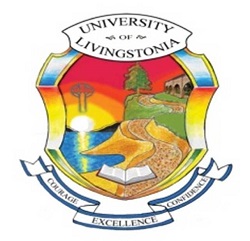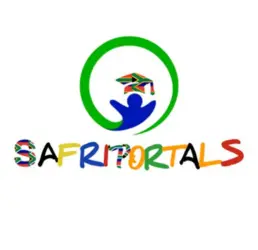The University of Livingstonia (UNILIA) Admission Requirements: 2022/2023 for all the courses at the Postgraduate, undergraduate, certificate & diploma level is updated every year.

Therefore, this article contains the full list of all the diploma, undergraduate and other courses coupled with their general requirements.
For admission into programs of study at the University of Livingstonia (UNILIA) for any first degree or second degree, an applicant must have the following requirements for successful admission.
UNIVERSITY OF LIVINGSTONIA (UNILIA) ADMISSION REQUIREMENT
General Admission Requirements
The eligible applicants are as follows:
- Candidates who completed the MSCE, IGCSE or O Level equivalent in the past three years (2019, 2020 and 2021);
- Candidates with an Advanced Subsidiary (AS) certificate or a National Senior Certificate (NSC) obtained in the past three years (2019, 2020 and 2021);
- Candidates who completed the Advanced (A) Level, International Baccalaureate (IB) Diploma or A Level equivalent in the past three years (2019, 2020 and 2021).
NOTE: All those currently enrolled in public universities and those who were withdrawn on academic grounds are NOT eligible to apply.
Programme Information and Entry Requirements
| CAMPUS, FACULTY AND PROGRAMMES | ENTRY REQUIREMENTS | DURATION |
| LAWS CAMPUS PROGRAMMES |
|
|
| A. FACULTY OF EDUCATION | ||
| 1. Bachelor of Education in Science
|
|
4 years |
| 2. Bachelor of Education in Humanities
|
|
4 years |
| 3. Bachelor of Education in Information and Communication Technology |
|
4 years |
| 4. University Certificate in Education (UCE) |
|
2 years |
| B. FACULTY OF APPLIED SCIENCES | ||
| 5. Bachelor of Science in Environmental Management |
|
4 years |
| 6. Bachelor of Science in Public Health |
|
4 years |
| 7. Bachelor of Science in Computer Engineering |
|
4 years |
| 8. Bachelor of Science in Food Security and Nutrition |
|
4 years |
| EKWENDENI CAMPUS PROGRAMMES – EKWENDENI |
||
| A. FACULTY OF SOCIAL SCIENCES | ||
| 9. Bachelor of Social Science in Human Rights |
|
4 years |
| 10. Bachelor of Social Science in Development Studies |
|
4 years |
| B. FACULTY OF THEOLOGY | ||
| 11. Diploma in Theology |
|
2 years |
| 12. Bachelor of Theology |
|
4 years |
| 13. Bachelor of Arts in Theology and Development Studies |
|
4 years |
| The Diploma and Bachelor of Theology are offered using generic/fulltime and Open Distance Learning (ODL) mode. | ||
| KANING’INA CAMPUS PROGRAMMES – MZUZU CITY | ||
| A. FACULTY OF BUSINESS AND COMMUNICATION STUDIES | ||
| 14. Bachelor of Accountancy |
|
4 years |
| 15. Bachelor of Business Management |
|
4 years |
| 16. Bachelor of Arts in Journalism and Development Communication. |
|
4 years |
| B. FACULTY OF AGRI-SCIENCES | ||
| 17. Bachelor of Science in Sustainable Agriculture |
|
4 years |
| 18. Bachelor of Science in Rural and Agrarian Development |
|
4 years |
| 19. Bachelor of Science in Agribusiness and Entrepreneurship |
|
4 years |
Note: All Programmes at Kaning’ina Campus are offered using Generic, Evening and Weekends modes.
B. POSTGRADUATE PROGRAMMES
- EKWENDENI CAMPUS
Faculty of Theology
- Master of Arts in Theology and Religious Studies
Description of the Programme
The primary aim of the Master of Theology and Religious Studies course is to provide continuing academic education at postgraduate level with particular focus on the development of competence in research skills. The course is designed to provide graduates with recognized qualifications to enable them to teach theology and religious studies at secondary and higher educational levels, and serve in various capacities in church, government and non-governmental organizations. They also would have the necessary knowledge and skills to pursue further study and research at the doctoral level.
- Master of Arts in Theology and Gender Studies
Description of the Programme
The Master of Theology and Gender degree focuses on deepening knowledge and skills in theology and gender. It aims to foster students’ understanding of the core theological areas whilst showing how these can shape a coherent Christian approach to issues concerning gender justice and equity in Malawi and beyond.
- Master of Arts in Theology and Development Studies
Description of the Programme
This programme recognizes the growing necessity of integrating approaches to development, which in Sub-Saharan Africa have often involved the Church, with theological understanding. In so doing, it seeks to deepen students’ understanding of the core theological areas whilst also showing how these can shape a coherent Christian approach to development in Malawi. The programme will take an in-depth look at the core areas within the disciplines of theology and development studies as well as exposing students to the ways in which they can be integrated.
Requirements for the programmes for Masters:
- Interested candidates should possess a Bachelor’s Degree in Theology, or Education (Humanities), or Social and Development Studies with credit or equivalent fields from an accredited institution.
- The programmes will be offered through both taught Coursework and Research or by Research only.
- Masters by Coursework and Research will be done in two years, with one year dedicated to coursework on the campus, while the second year to research.
- Masters by Research will be completed in three years, through extensive research work and writing of modules
- KANING’INA CAMPUS
1. Master of Science in Global Sanitation
Description of the Programme
The programme aims at educating talented and ambitious young and mid-career professionals working at sewerage companies, municipal assemblies, government ministries, private sectors, NGOs and consulting companies to deal with rural, urban and peri-urban sanitation, sanitation for vulnerable populations. They will become sanitation experts capable to plan, design and implement sanitation programmes and projects in Malawi and worldwide.
This programme has a one year taught course work on a modular-basis. The delivery of modules will be on a block release of specified duration spread throughout the first year. The second year will be for students to do own research that will lead to an examinable thesis.
Location: Kaning’ina Campus, in the City of Mzuzu at about 0.5 km from the Mzuzu to Nkhata-Bay road at Mtwaro Flats.
Requirements:
- Interested candidates should possess a Bachelor’s Degree in Public Health, Food Security and Nutrition, Environmental Management, Education Sciences, Community Development and other health related fields from an accredited institution.
Read Also:
- List of Courses Offered at University of Livingstonia (UNILIA) >>>
- View University of Livingstonia (UNILIA) Prospectus in PDF >>>
- How to Access for University of Livingstonia (UNILIA) Online Application Forms >>>
- How to Check your University of Livingstonia (UNILIA) Application Status >>>
- University of Livingstonia (UNILIA) Student Portal >>>
- University of Livingstonia (UNILIA) Fee Structure >>>
Don’t miss out on current Updates, kindly like us on Facebook & follow us on Follow @EAfinder OR leave a comment below for further inquiries.
